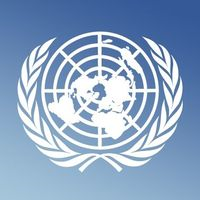Telegram: The New Frontier for Southeast Asian Crime Syndicates
October 10, 2024, 5:14 pm

Location: United Kingdom, England, London
Employees: 201-500
Founded date: 2011
Total raised: $1.33B
In the digital age, shadows have found a new home. Telegram, a messaging app with nearly a billion users, has become a playground for Southeast Asian criminal networks. The United Nations Office on Drugs and Crime (UNODC) recently unveiled a report that paints a grim picture. It reveals how these groups exploit the platform for illicit activities, fundamentally altering the landscape of organized crime.
The report highlights a staggering transformation. Criminals are no longer confined to dark alleys or backroom deals. They now operate in a virtual marketplace, where anonymity reigns supreme. Telegram's encrypted messaging allows for seamless communication, making it an ideal tool for those who thrive in the shadows.
The findings are alarming. Southeast Asia has morphed into a hub for a multi-billion dollar fraud industry. Estimates suggest this underground economy rakes in between $27.4 billion and $36.5 billion annually. This is not just a regional issue; it has global implications. Victims span continents, as personal data is traded like currency.
What’s on offer in this digital bazaar? A smorgasbord of illicit goods and services. From stolen credit card information to malware designed for data theft, the inventory is vast. The UNODC identified over ten suppliers of deepfake software catering to these criminal enterprises. This technology, once a novelty, is now a weapon in the hands of fraudsters.
The implications for consumers are dire. Personal data is more vulnerable than ever. With each transaction, the risk of falling prey to scams escalates. The UNODC warns that the shift to Telegram has intensified the threat landscape. Criminals are actively seeking targets, and the unsuspecting public is left exposed.
The rise of Telegram as a criminal haven has not gone unnoticed. In France, authorities have taken a hard stance. Pavel Durov, the app's founder, was arrested for allegedly facilitating criminal activities. This unprecedented legal action raises questions about the responsibilities of tech companies. Where does freedom of speech end, and accountability begin?
Durov's arrest has sparked a debate. Should app providers be held liable for the actions of their users? The line between protecting free expression and enforcing the law is blurry. As the digital world expands, so do the challenges of regulation.
In response to the growing scrutiny, Durov announced measures to combat misuse. He stated that Telegram would comply with legal requests, including sharing user data with authorities. However, the effectiveness of these measures remains to be seen. Can a platform built on privacy truly safeguard against abuse?
The UNODC's report serves as a wake-up call. It underscores the need for a coordinated response to cybercrime. Governments must collaborate to develop strategies that address the evolving tactics of criminals. The fight against organized crime is no longer confined to physical borders; it has entered the digital realm.
As Southeast Asia becomes a focal point for cybercriminals, the stakes are high. The region's burgeoning tech landscape presents both opportunities and challenges. While innovation drives economic growth, it also creates fertile ground for exploitation. The duality of technology is a double-edged sword.
Public awareness is crucial. Consumers must be educated about the risks associated with digital transactions. Knowledge is power, and understanding the threats can help individuals protect themselves. Cyber hygiene should become a priority, as the line between online and offline safety blurs.
Law enforcement agencies are also adapting. They must harness technology to combat cybercrime effectively. This includes investing in training and resources to keep pace with rapidly evolving threats. The battle against organized crime requires a multifaceted approach, combining traditional methods with cutting-edge technology.
In conclusion, Telegram has emerged as a significant player in the world of organized crime. The UNODC's findings reveal a troubling trend that demands urgent attention. As criminals exploit the platform's features, the responsibility falls on governments, tech companies, and consumers alike. The digital landscape is a battleground, and the fight against cybercrime is just beginning. The shadows may be lurking, but with vigilance and collaboration, they can be pushed back. The future of safety in the digital age depends on it.
The report highlights a staggering transformation. Criminals are no longer confined to dark alleys or backroom deals. They now operate in a virtual marketplace, where anonymity reigns supreme. Telegram's encrypted messaging allows for seamless communication, making it an ideal tool for those who thrive in the shadows.
The findings are alarming. Southeast Asia has morphed into a hub for a multi-billion dollar fraud industry. Estimates suggest this underground economy rakes in between $27.4 billion and $36.5 billion annually. This is not just a regional issue; it has global implications. Victims span continents, as personal data is traded like currency.
What’s on offer in this digital bazaar? A smorgasbord of illicit goods and services. From stolen credit card information to malware designed for data theft, the inventory is vast. The UNODC identified over ten suppliers of deepfake software catering to these criminal enterprises. This technology, once a novelty, is now a weapon in the hands of fraudsters.
The implications for consumers are dire. Personal data is more vulnerable than ever. With each transaction, the risk of falling prey to scams escalates. The UNODC warns that the shift to Telegram has intensified the threat landscape. Criminals are actively seeking targets, and the unsuspecting public is left exposed.
The rise of Telegram as a criminal haven has not gone unnoticed. In France, authorities have taken a hard stance. Pavel Durov, the app's founder, was arrested for allegedly facilitating criminal activities. This unprecedented legal action raises questions about the responsibilities of tech companies. Where does freedom of speech end, and accountability begin?
Durov's arrest has sparked a debate. Should app providers be held liable for the actions of their users? The line between protecting free expression and enforcing the law is blurry. As the digital world expands, so do the challenges of regulation.
In response to the growing scrutiny, Durov announced measures to combat misuse. He stated that Telegram would comply with legal requests, including sharing user data with authorities. However, the effectiveness of these measures remains to be seen. Can a platform built on privacy truly safeguard against abuse?
The UNODC's report serves as a wake-up call. It underscores the need for a coordinated response to cybercrime. Governments must collaborate to develop strategies that address the evolving tactics of criminals. The fight against organized crime is no longer confined to physical borders; it has entered the digital realm.
As Southeast Asia becomes a focal point for cybercriminals, the stakes are high. The region's burgeoning tech landscape presents both opportunities and challenges. While innovation drives economic growth, it also creates fertile ground for exploitation. The duality of technology is a double-edged sword.
Public awareness is crucial. Consumers must be educated about the risks associated with digital transactions. Knowledge is power, and understanding the threats can help individuals protect themselves. Cyber hygiene should become a priority, as the line between online and offline safety blurs.
Law enforcement agencies are also adapting. They must harness technology to combat cybercrime effectively. This includes investing in training and resources to keep pace with rapidly evolving threats. The battle against organized crime requires a multifaceted approach, combining traditional methods with cutting-edge technology.
In conclusion, Telegram has emerged as a significant player in the world of organized crime. The UNODC's findings reveal a troubling trend that demands urgent attention. As criminals exploit the platform's features, the responsibility falls on governments, tech companies, and consumers alike. The digital landscape is a battleground, and the fight against cybercrime is just beginning. The shadows may be lurking, but with vigilance and collaboration, they can be pushed back. The future of safety in the digital age depends on it.
